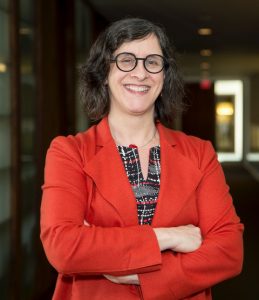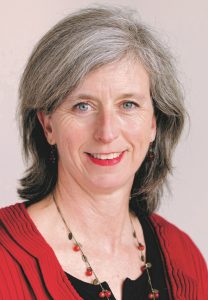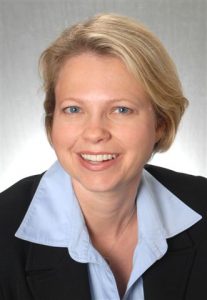Investing in Valued Property
The focus of the upcoming Sandford Fleming Forum on October 10, 2019, will be the connection between investment decision making and the through-life value of the property in the market and the community. The meeting, held in cooperation with BOMA Toronto will showcase three excellent presentations highlighting the fact that community resilience is underpinned by the operational resilience of the three pillars: municipal corporation, community housing, and commercial real estate (CRE).
CRE provides the economic engine that buffers the impact of loss and provides the capacity for recovery. It also has a direct role in the physical and social well-being of the community during times of stress and shock. The more resilient the community becomes, the greater its value and hence the market value of the CRE. It therefore makes sense that CRE engages with the community and surroundings that give it value.
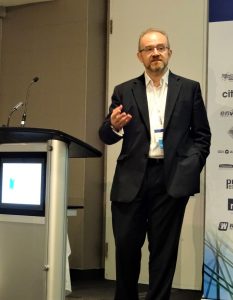
MC Alec Hay
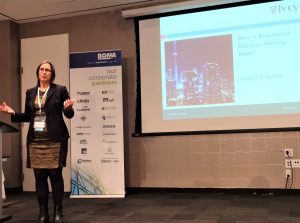
Speaker Laurel Austin
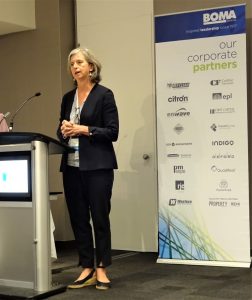
Speaker Melanie Hare
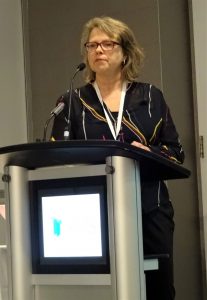
Speaker Catherine Jackson
Speakers:
Laurel Austin - Why Risk-based Investment Decision Making is Hard
There is increasing emphasis on using climate related risk information to improve risk-informed investment and development decision-making, including in the real estate sector. Estimating, analyzing and using this new kind of risk information necessitates using new decision making methods, including use of scenario analysis where uncertain futures must be considered. In this presentation I’ll discuss why people resist moving to new decision making methods, as well as why people have difficulty in assessing and using risk information when making hard decisions. Some ways to improve risk-based decision making will be discussed.
Laurel Austin’s research and teaching at the Ivey Business School focuses on how intuitive decision making processes affect risk perceptions and impact quality of risk-based decision making. She uses Behavioural Science Insights to inform design of interventions, policies and communications to improve individual and organizational risk management. Her recent research focuses on decisions related to funding of road infrastructure, preventive medicine, and safety in high-risk occupations. She was a professor of Strategic Decision Making and Risk Management at Copenhagen Business School, Denmark, from 2007-2016 and has served as Senior Research Scientist for Decision Partners since 2007.
Her slides can be found here.
Melanie Hare - Growth + Infrastructure = competitive, healthy, livable, sustainable, resilient
For over 20 years Melanie has been working with communities across North America on policy development and city building initiatives, in particular related to growth management, sustainable communities, and transit supportive development. Melanie has effectively developed plans and policies, and has provided development review related to intensification and growth management for many communities in the Greater Golden Horseshoe, including Toronto, Oakville, Waterloo, Kitchener, Pickering, Guelph, Brampton, Niagara and Durham. Much of her work over the past decade has focused on growth management issues. Melanie was involved in policy development for employment, intensification and urban growth centre components of Ontario’s Growth Plan for the Greater Golden Horseshoe and completed the Growing Durham Study for the Region of Durham. Melanie led the Niagara Region and Durham Region Greenbelt Plan Review and developed a series of case studies for the Growth Plan for the Greater Golden Horseshoe for the Ontario Growth Secretariat in 2011. In Alberta, she led the Edmonton Metropolitan Region Growth Plan and the Calgary Metropolitan Region Interim Growth Plan. Her recent update to the National Physical Development Plan for Government of Barbados was very much focused on resiliency and redirecting patterns to ensure sustainable growth, both fiscally and in community design and infrastructure.
Catherine Jackson - Investors & Environmental, Social, and Governance (ESG)
How do investors around the world think about, and implement Environmental, Social, and Governance (ESG) criteria? What do the recommendations from the Task force on Climate-related Financial Disclosures (TCFD) mean? How do these factors relate to Return of Interest (ROI) in institutional investor real estate portfolios?
Catherine Jackson is currently President of Jackson Principled Governance. She has worked with institutional investors since 2001 to identify the ESG risks and opportunities in their portfolios and investment mandates. She focusses on the intersection of capital and sustainability, particularly in regards to risks and opportunities presented by climate change.
Catherine developed this expertise through two decades of leading global sustainable ownership activities at large pension fund investors. She was Senior Advisor, Responsible Investment with sustainability leader PGGM in the Netherlands, and before that she was responsible for corporate governance at the Ontario Teachers' Pension Plan.
Catherine is a CPA, CA and writes and speaks regularly, having been quoted in the global financial press including the Financial Times, the Wall Street Journal, the New York Times and the Globe and Mail.
The slides of the presentation can be found here.
The meeting was held at the Toronto Region Board of Trade at 77 Adelaide Street West, Toronto as a breakfast event on Thursday, October 10, 2019.
In cooperation with:

